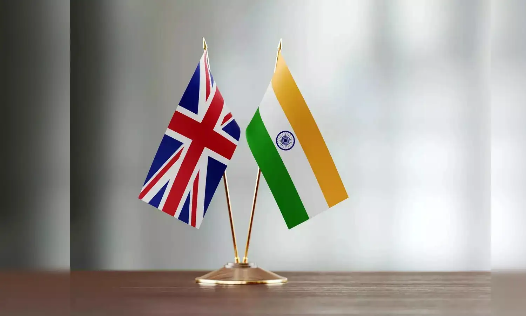Payment is being processed. Please do not refresh or close this page until your payment is complete.
 Book an Appointment
Book an Appointment

Synopsis
India and the UK are close to finalizing a trade agreement. Visa rules are a major discussion point. The UK will offer limited business visas to Indian workers. India wants firms to recover pension contributions for short-term visas. India also seeks exemptions from the UK's carbon border tax. Both countries aim to boost trade and economic opportunities.
India and the UK are edging closer to finalizing their Free Trade Agreement (FTA), with visa provisions becoming one of the focal points of the discussions.
As negotiations reach their final stages, the UK has confirmed that the new deal will only introduce limited changes to its visa regime.
The UK’s concession will see around 100 additional business mobility visas for Indian workers annually, a UK official told POLITICO.
However, the scope of these changes remains narrow, with only temporary business mobility visas being part of the agreement. Other visa categories, such as student visas, will not be included in the deal.
The UK government informed the House of Lords in March that the negotiations cover only business mobility visas, which are limited, temporary, and intended for specific purposes, such as inter-company transfers.
These provisions aim to facilitate UK exporters in delivering services abroad but do not address broader immigration or student visa issues, as clarified by Lord Sonny Leong, the Government Whip in the Lords.
“Our negotiations consider only business mobility, so they cover only relevant business visas, which are, by their nature, limited, temporary and for specific purposes. Student visas are not part of the trade deals,” Lord Leong said.
India initially pushed for a much larger quota of professional visas, especially for sectors such as IT and healthcare.
However, the UK’s visa offer is considerably more modest. The "mobility chapter" of the trade deal, which is focused on easing the movement of business professionals, was finalized recently, although the exact number of workers the agreement will bring to the UK remains unclear.
A person close to the negotiations stated that putting a specific figure on the number of Indian workers was “purely political,” with the focus instead on providing "certainty" to businesses amid the evolving visa regime.
In parallel with the visa discussions, India’s chief trade negotiator, Piyush Goyal, is expected to press the UK for additional concessions when he visits London this week.
One of his key demands is to allow Indian firms to recover contributions made to the UK’s state pension system by workers on short-term visas, a provision already available to other countries.
Additionally, India is seeking carve-outs from the UK’s carbon border tax, which could impose high duties on Indian exports like steel , cement, and aluminum, raising concerns about the potential impact on Indian businesses.